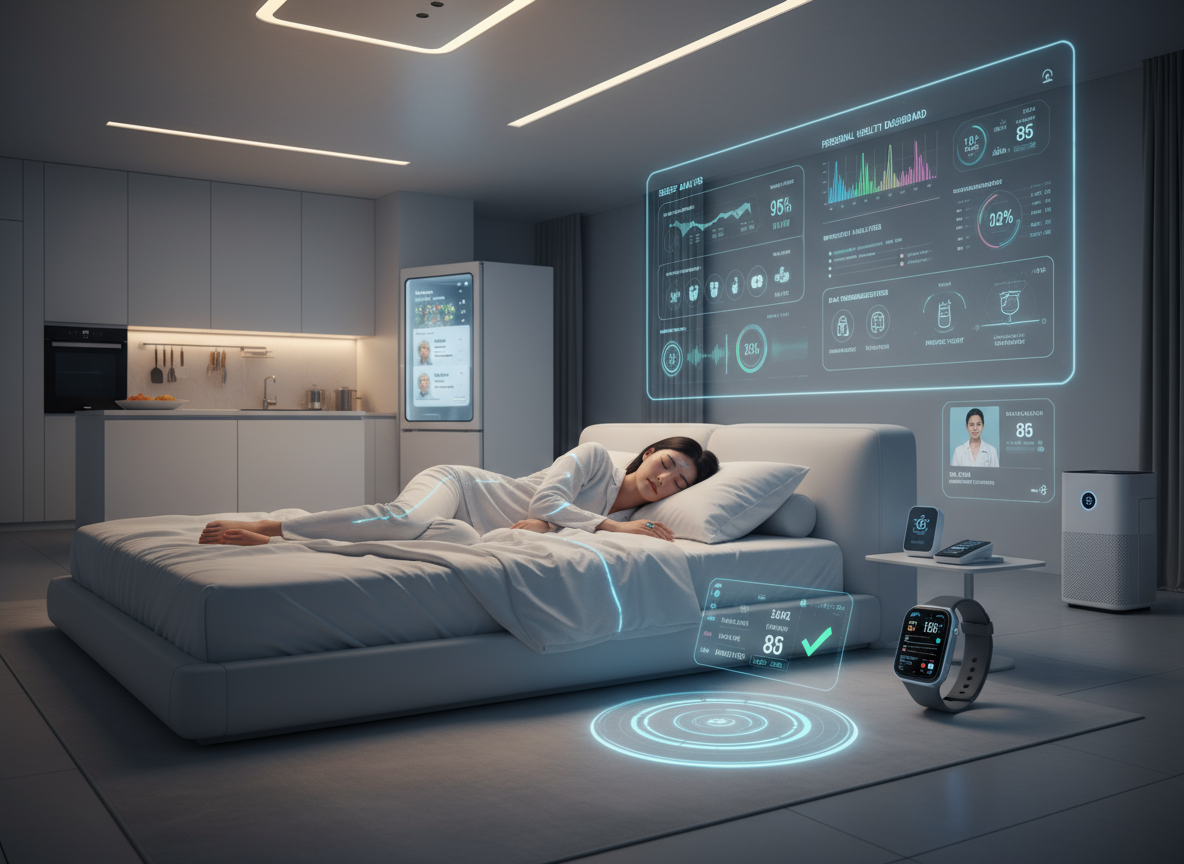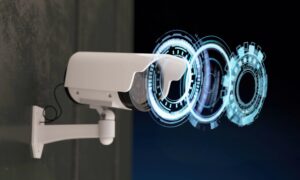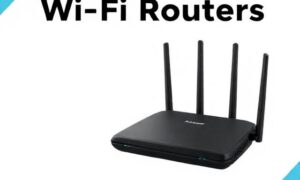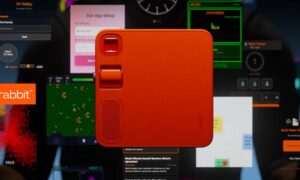AI-powered health monitors are revolutionizing personal and clinical healthcare. These devices collect real-time data on vital signs, sleep patterns, and activity levels. Consequently, users and healthcare professionals can track health trends, detect early warning signs, and make informed decisions. By 2025, AI-driven wearables and sensors provide continuous monitoring with predictive insights for a healthier lifestyle.
In both the UK and US, consumers increasingly adopt these devices to support fitness goals, chronic disease management, and preventive care. Moreover, integration with smartphones, cloud platforms, and AI analytics allows seamless monitoring and actionable recommendations. As a result, AI health monitors are transforming how individuals and clinicians manage wellbeing.
Why AI Health Monitors Matter in 2025
Traditional health monitoring often relies on periodic checkups or manual logging. AI health monitors provide continuous, real-time insights, reducing gaps in observation. Furthermore, predictive AI identifies anomalies before they escalate, enabling timely interventions.
UK users report improved management of conditions like hypertension and diabetes using AI monitors. US patients highlight better sleep tracking, heart health monitoring, and personalized fitness guidance. Consequently, these devices enhance both personal health awareness and clinical decision-making.
Key Features of AI Health Monitors
- Continuous Vital Monitoring – Tracks heart rate, blood pressure, oxygen saturation, and other metrics.
- Predictive Analytics – Alerts users to potential health risks before symptoms appear.
- Activity and Sleep Tracking – Provides personalized insights to improve fitness and rest.
- Integration with AI Apps – Offers recommendations based on data trends and goals.
- Remote Health Monitoring – Enables clinicians to monitor patients outside clinical settings.
These features collectively provide proactive, data-driven health management.
Top AI-Powered Health Monitors in 2025
1. Apple Watch Series 11
Apple Watch Series 11 combines sensors with AI algorithms to provide advanced health insights. It monitors heart rate, ECG, blood oxygen, and more.
Key Features:
- Continuous heart and blood monitoring
- Predictive health alerts
- Activity and sleep analytics
- Seamless integration with iOS health apps
UK users appreciate its accuracy in heart monitoring. US fitness enthusiasts highlight personalized coaching and activity tracking. Therefore, it’s one of the most versatile AI health devices available.
2. Fitbit Sense 3
Fitbit Sense 3 leverages AI to monitor stress, heart rate, and sleep. It provides personalized wellness suggestions based on real-time data.
Key Features:
- Stress and heart monitoring
- Sleep quality analysis
- Activity tracking and goal recommendations
- AI-driven insights
UK consumers report better sleep habits with AI-guided suggestions. US users note improved daily activity adherence. Consequently, Fitbit Sense 3 combines AI and wellness for proactive health management.
3. Garmin Vivosmart AI
Garmin Vivosmart AI focuses on fitness and health monitoring with AI-driven performance insights. It tracks workouts, heart health, and recovery metrics.
Key Features:
- Workout optimization using AI
- Heart rate and stress monitoring
- Recovery tracking
- Multi-device synchronization
UK users value data-driven training adjustments. US athletes highlight AI insights for improved performance. Therefore, it supports both casual users and high-performance fitness enthusiasts.
4. Withings ScanWatch AI
Withings ScanWatch AI provides medical-grade ECG, heart rate, and oxygen monitoring with AI-based analysis. Alerts notify users of irregular heart rhythms.
Key Features:
- ECG and blood oxygen monitoring
- AI-driven anomaly detection
- Sleep and activity tracking
- Long battery life
UK users report early detection of cardiac irregularities. US patients appreciate integration with healthcare providers. Consequently, it offers clinically relevant monitoring in a wearable device.
5. BioSticker by BioIntelliSense
BioSticker is a clinical-grade, continuous health monitoring patch that uses AI for predictive analytics. It tracks vital signs, respiratory rate, and skin temperature.
Key Features:
- Continuous monitoring for multiple metrics
- Predictive health alerts
- Remote patient monitoring
- Cloud-based AI analytics
UK hospitals use BioSticker for patient monitoring outside clinics. US healthcare providers note reduced hospital readmissions. As a result, it bridges personal health tracking with clinical applications.
Comparison Table: AI Health Monitors 2025
| Device | Primary Use | AI Features | Best For | UK/US Feedback |
|---|---|---|---|---|
| Apple Watch Series 11 | Daily health & fitness | Continuous monitoring, predictive alerts | General wellness & fitness | Accurate, versatile, intuitive |
| Fitbit Sense 3 | Wellness & sleep | AI-driven insights, sleep tracking | Stress & fitness management | Personalized wellness guidance |
| Garmin Vivosmart AI | Fitness & performance | AI training optimization | Athletes & active users | Data-driven workout insights |
| Withings ScanWatch AI | Clinical monitoring | ECG, SpO2, AI alerts | Heart health & early detection | Clinically relevant, proactive alerts |
| BioSticker | Clinical monitoring | Continuous metrics, predictive analytics | Patients & hospitals | Reduces readmissions, remote monitoring |
Benefits of AI Health Monitors
- Proactive Health Management – Predictive alerts allow early intervention.
- Personalized Insights – Tailored recommendations enhance fitness, sleep, and overall health.
- Time Savings – Continuous monitoring reduces the need for frequent checkups.
- Remote Healthcare – Clinicians can monitor patients without in-person visits.
- Improved Outcomes – Data-driven insights improve chronic disease management and wellness.
Because AI combines real-time monitoring with predictive analytics, it empowers individuals and healthcare providers alike.
How to Implement AI Health Monitors
- Select a device based on health goals and monitoring needs.
- Sync with smartphone apps or cloud platforms for data analysis.
- Train users to interpret AI recommendations accurately.
- Integrate data sharing with healthcare professionals if needed.
- Regularly update devices to access latest AI features.
Proper implementation ensures users gain maximum benefit from predictive and personalized monitoring.
Final Thoughts
AI-powered health monitors are transforming personal and clinical healthcare in 2025. Devices like Apple Watch Series 11, Fitbit Sense 3, and Withings ScanWatch combine real-time monitoring with predictive AI to enhance wellbeing.
UK and US users report improved health awareness, better fitness outcomes, and earlier detection of health risks. Moreover, these tools complement traditional medical care, providing continuous data and actionable insights. Consequently, AI health monitors represent a significant leap toward proactive, personalized, and data-driven healthcare.





















